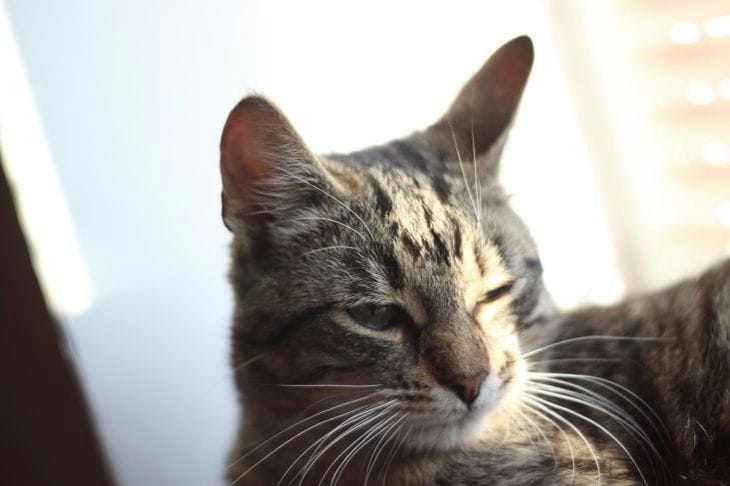How to Understand That Your Cat Has Dementia: Advice for Owners
Old age is an inevitable stage in the life of any creature, and cats are no exception.
Over time, they, like humans, may experience changes in cognitive function, which in turn can lead to the development of cognitive dysfunction, often called dementia.
How can you recognize this condition in your furry friend and what actions should you take if you notice alarming symptoms?
Changes in behavior: the first warning sign
Feline cognitive dysfunction is a syndrome characterized by a gradual decline in cognitive functions such as memory, attention, spatial orientation, and learning ability.
This condition can present in a variety of ways and is not always easy to spot in its early stages.

One of the most common signs of dementia in cats is changes in their behavior.
Your cat may become more restless, disoriented, and lose interest in familiar activities. For example, your cat may wander around the house without any apparent purpose, meow for no apparent reason, especially at night, or show signs of anxiety or fear in familiar surroundings.
Sleep and daily routine disturbances: another sign
Changes in sleep and wake patterns may also indicate cognitive impairment.
A cat with dementia may sleep more during the day and less at night, which disrupts their normal daily routine. This can lead to disorientation and restlessness, especially at night.
Social activity: alienation or excessive attachment
Another sign of cognitive dysfunction is changes in social activity.
The cat may become more withdrawn, avoid contact with family members, or, conversely, become overly attached, constantly demanding attention. It may forget familiar commands or stop responding to its name.
Toilet Difficulty: Losing Habits
Some cats with dementia may have difficulty going to the toilet. They may forget where the litter box is or start urinating in inappropriate places. This is due to memory and spatial orientation problems.
Diagnostics and assistance of a veterinarian
If you notice any of these changes in your pet, it is important to consult your veterinarian.
Only a specialist can conduct a full examination and rule out other possible causes of changes in behavior, such as infections, internal diseases, or pain.
Diagnosis of cognitive dysfunction in cats is based on reviewing the medical history, observing the animal’s behavior, and ruling out other possible causes of the symptoms. Your veterinarian may perform a number of tests to evaluate your cat’s cognitive functions, such as checking its memory, attention, and ability to solve simple problems.
Caring for a Cat with Dementia: Comfort and Safety
Unfortunately, cognitive dysfunction is a progressive disease that cannot be completely cured. However, there are ways to slow down the progression of the disease and improve the cat's quality of life.
One of the most important aspects of caring for a cat with dementia is creating a comfortable and safe environment for it.
It is important to provide her with a stable daily routine, with regular feeding, walking (if the cat walks outside), play and socialization. This will help reduce the stress and disorientation associated with cognitive impairment.
Earlier we talked about whether it is possible to wash a cat with regular shampoo .
